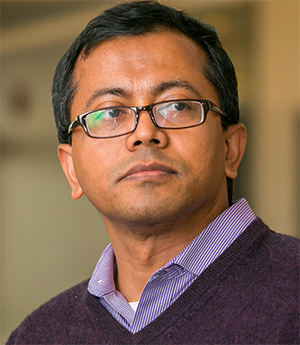
Stony Brook University's relentless pursuit of tomorrow's big ideas takes a giant leap forward as Professor Rezaul Chowdhury of the Department of Computer Science and the Institute for Advanced Computational Science (IACS) secures a prestigious National Science Foundation (NSF) grant. His groundbreaking project, "Algorithms and a Code Generator for Faster Stencil Computations," aims to revolutionize scientific simulations across multiple disciplines and promises to dramatically improve the efficiency of stencil algorithms, a crucial technique used in various scientific simulations.
Stencil computations are widely used in fields such as physics, biology, climate modeling, and engineering. They often arise from discretizing partial differential equations and involve updating values in a multi-dimensional grid based on neighboring points. While current methods for implementing stencil computations focus on improving data locality, Rezaul's innovative approach combines theoretical advancements with practical tools to revolutionize these computations. This approach builds on his group’s award-winning prior work.
"Our goal is to develop algorithms that can reduce the complexity of stencil computations by a polynomial factor for linear and nonlinear stencils with spatial and temporal heterogeneity using fast Fourier transforms and other techniques," explains Rezaul. "This could lead to significant performance gains and run faster than the fastest existing algorithms, leading to energy savings across a wide range of scientific and engineering applications."
The project has two main components. First, it will design faster algorithms for various types of stencil computations, including linear and nonlinear stencils and those with complex boundary conditions. Second, it will develop a domain-specific language and code generator called "Saltar" that can automatically produce highly efficient parallel implementations of these algorithms.
Dr. Samir Das, professor and chair of the Department of Computer Science, highlights the potential impact of this research. "Professor Chowdhury's work could significantly accelerate scientific discovery in fields that rely heavily on computational simulations. It's a perfect example of how theoretical computer science can have far-reaching practical applications."
Since part of the project's impact extends beyond computer science, the team plans to develop a public web interface that allows researchers and programmers to easily generate efficient stencil computation code for various hardware platforms. This tool could democratize access to high-performance computing techniques across multiple scientific disciplines.
"We're not just solving a theoretical problem," Rezaul says. "We aim to create practical tools that can be widely used in the scientific community, making complex simulations faster and more accessible to researchers everywhere."
-By Yuganshu Jain
